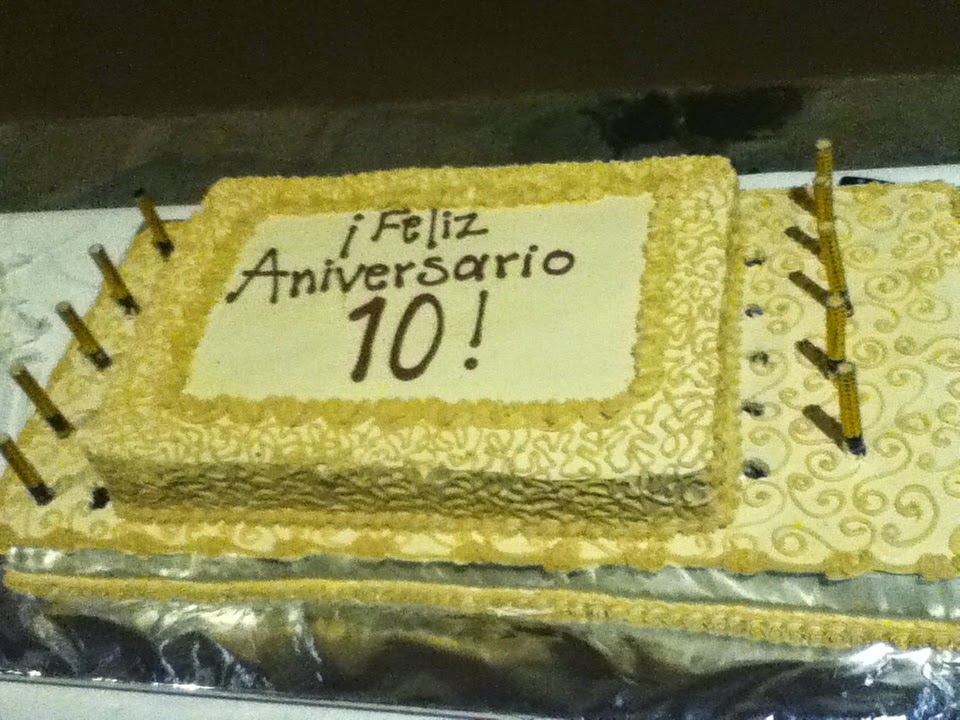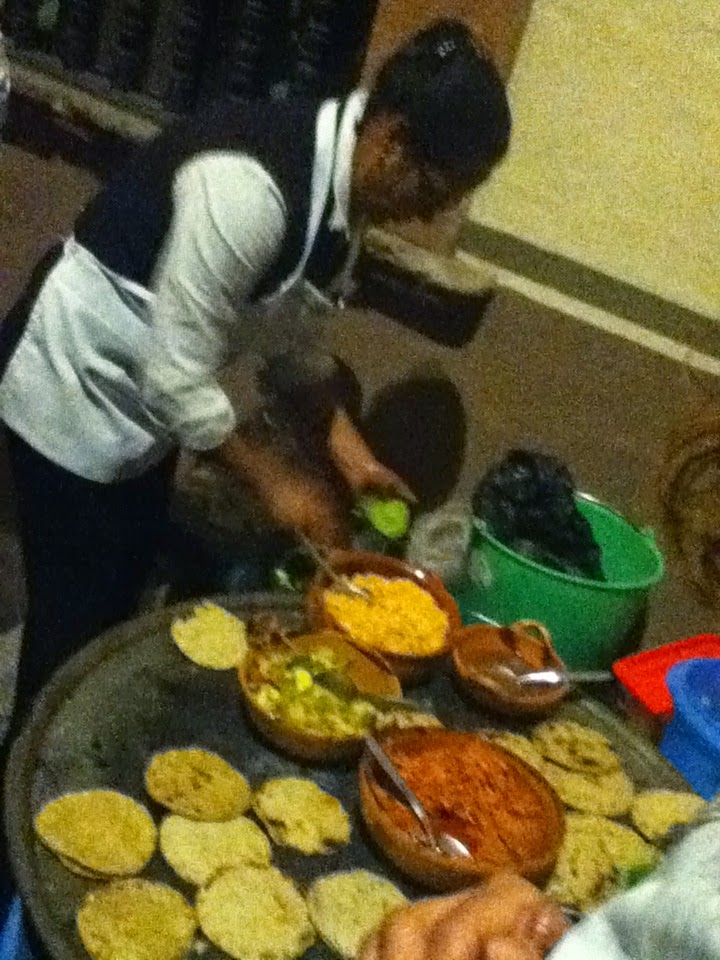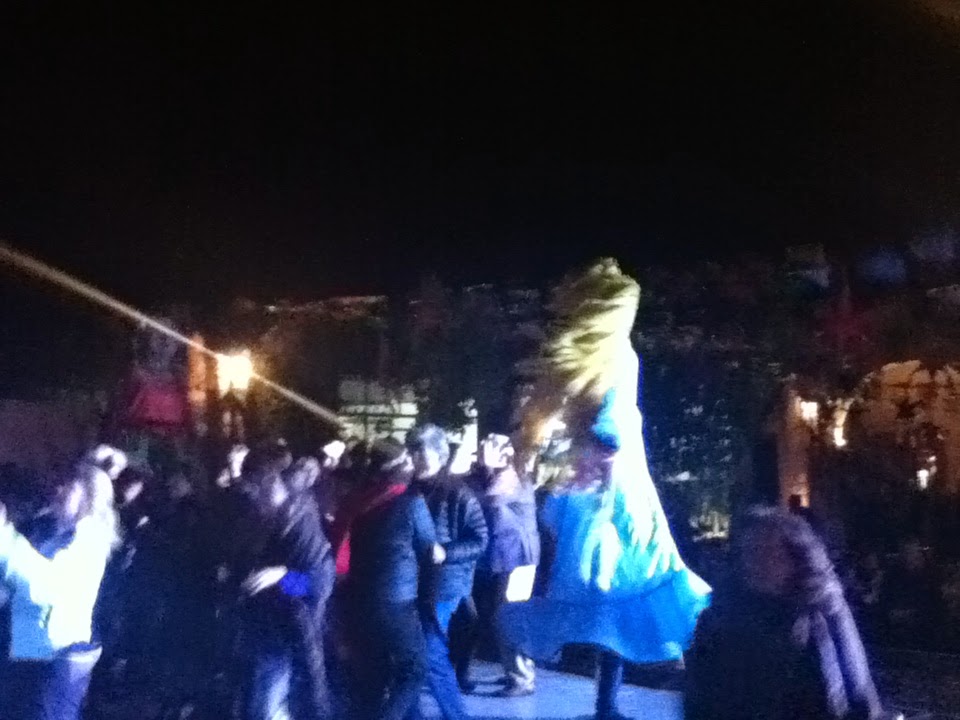More Brilliant Than Ever
by Nancy
Snipper
Into its 10th year of
bringing the world’s greatest writers before you, including 7 keynote
addresses, and 300 workshops led by over 55 seasoned writers and marketers with whom you can hone your skills, and let’s
not forget the excursions and fiestas – this year’s smashingly exciting
conference totally impressed me from the
first day. The atmosphere was dynamic and exhilarating.
Famous writers, stimulating workshops, enthusiastic
participants!
Tracy Chevalier, author of “The Girl with the Pearl Earring” reflected the caliber of
intellectual genius represented by the line-up of great authors. She delighted
us with her reading from the famous novel that became a hugely successful movie.
 |
| Tracy Chevalier |
Ms. Chevalier spoke about history and the
vital role it plays in her writing? According to Ms. Chevalier, history allows us
to come out of ourselves while giving us our roots and personal identities. We
are formed by the past yet move beyond it into our own 3-dimensional
personhood. A historical fiction writer, Ms. Chevalier leaves no detail
unturned in her research. Interestingly,
she only became interested in history through a family reunion in which learned
that her Huguenot heritage played a huge part in her family’s past perils:
her grandparents escaped persecution in Southern
France by fleeing to Switzerland.
Ms. Chevalier’s understated manner,
nonetheless, could not hide her great talent to merge historical time frames
into contemporary relevance.
Her unpretentious presentation, given in
the huge ballroom of the lovely Minas de Real Hotel, displayed her unique gift
of merging academic flare with
imaginative grit that fills her novels
The first workshop I attended addressed
the topic of writing fiction based on real characters either alive or deceased.
Presented by the soft spoken writer Rosalind Brackenbury who had us all writing
about a person we know or have known and that obviously affected us so much
that we wanted to write a novel in which they appeared.
 |
| Rosalind Brackenbury |
The dilemma of hurting
those we know can be the outcome of such writing, but she encouraged us all
to speak authentically within the fictional narrative. It was a topic that hit close to home for me;
my short stories have been inspired by persons I have known, but imaginative
reinvention lies at the heart of all my fictional writing.
This workshop emboldened me to keep on being courageous when it comes to creating characters – some formed partially from events or people who affected my own life.
Prior to the evening’s fabulous food and
wine party of magnifico Mexican specialties – yes, the margaritas were moving
into our mouths at a rapid rate – Alice
Walker – the controversial, Pulitzer Prize winner shared the keynote stage with
lawyer and writer, Carol Merchasin who led the interview in a shared conversational
format.
 |
| Alice Walker |
 |
| Carol Merchasin |
Author of “The Color Purple”,
Ms Walker spoke about genital mutilation (one of her causes célèbre), dodged
the accusation she was anti-Semitic by
using semantics to defend the attack on her regarding this issue; and she shared her views on how deeply
insensitive and greedy the world has become.
The diminutive author and activist
stressed that we all must change – that we must listen and examine what we do
and reflect deeply on our actions.
She discussed her own experience being
the child of parents who lived a grueling life as share croppers. One theme
that stuck with her was the necessity of honesty and that we are all children
of God. How ironic that this feminist who celebrates women and stresses the
need to listen to others abruptly left me when I approached her and began to
share a small anecdote that I felt relevant to one of her key topics – racism. She said, “I’ll be right back” (twice in
fact). She never came back. So much for honesty.
I guess when you have 15 million books in print, you can do
whatever the … you want.
Could this brilliant author of
goddess-like stature actually be as normal and flawed as the rest of us are? I
felt Ms Walker held intense anger deep within her – justified certainly with
what she has endured: racism as a Black woman, abject poverty in childhood and
having little money to raise her family; and as the recipient of both multiple
awards and rejections for voicing her views – many too offensive or radical for
Middle America and men of traditional bent - an inevitable hunk of bitterness
sits in her delicate soul. I was stunned
by some of the outrageous statements she made and was even shocked at the black
and white views she held that posed a dilemma for me: a mythical writer with
myths of her own.
Gloria Steinem, co-founder of Ms. Magazine and founder of over 25 organizations dedicated to a myriad of issues
related to women’s rights, is a gentle, loving brilliant woman who believes
that the story – the narrative must start from the ground up in the way oral
stories do in aboriginal cultures – that we are all from the same culture –
that the story defines civilization not the invention of the wheel. Words must
not divide or be exclusive to gender differentiation, politics and bi-partisan
and opposing poles, such as black and white, feminine and masculine. She
embraces a new norm – that there is no norm, and we must embrace this.
Now 81, this noble pioneer continues to
spread her revolution of words. Beautiful, honest and humorous, Gloria Steinem
is the original feminist who inspires all humans.
.JPG) |
| Gloria Steinen (photo by Sunday Wittie) |
The Perfect Pitch Session That Sends Writers Into the Agent’s Den.
.jpg) |
| Louisa Rogers |
Many of the keen-to-be-published
participants signed up to give a pitch of their novel or screen play to one or
more of the five agents the conference had invited. An invaluable workshop led
by Louisa Rogers addressed all the pitfalls and common errors we make when we
pitch our story. After outlining a format for presenting the proper pitch whose
12 points included the appropriate behavioral manner of presentation, Ms.
Rogers got us into group of three to practice making the pitch – that defining
moment that might get you signed on with an agent. Each one of us role played:
we each had a go at pitching, being the agent, being a listener, and finally
sharing our comments with constructive suggestions and feedback within our
small group.
Too much detail, rambling on, giving the
hook in one or two sentences, forgetting to mention the genre it is and acting
unnaturally were pointers we all benefited from.
I found I was a far better pitch adviser
than a “pitcher”, but my two writing pals graciously let me know that I had
engaged them fully. This workshop provided a clear guideline map as to content
communicative tips for pitching to an agent face to face. I decided to take the pitching plunge for my
novel, “Floating on Lily pads”, and
made appointments with two agents. Kimberly Cameron fit me in at the end of the
day. But the rain created a move from the cold tent where pitches were taking
place necessitated a speedy retreat into the noisy lobby of the hotel. Interruptions,
and her husband showing up earlier than planned – to take her home, gave insufficient
time; it was supposed to be 15 minutes. She did ask me to send 50 pages of my
novel and also suggested a different title.
Kimberley Cameron was fun, but I seemed
to be cursed with being the butt of unfinished conversations.
I had better luck with the agent Melissa
Fleishman out of New York who asked me to send the entire manuscript of my
novel. One problem though: it isn’t finished!
Scott
Turow, Richard Blanco, Angeles Mastretta, Jane Urquhart and Gloria Steinem also
inspired us as part of the prestigious rostrum of keynote authors. Each one offered wit, honesty, humorous
stories and insight into their own unique writing journey. Ms. Urquhart was as
funny as any Stephen Leacock essay. Her self-deprecating humour was hilarious –
proving Canadians have a laughable sense of self; she communicated this
cleverly and eloquently.
As each of their personal stories
unfolded, I realized how authentic these hard working visionaries are – that as
exquisite masters of their craft, they continue to celebrate the infinite
possibilities of a world through the printed word.
Their genius both confounds and inspires
me to continue slogging away on blank pages my imagination feels compelled to
fill.
One of the best panels comprised several
writers who offered tangible tips on how to self publish. Each has formed their
significant following of zillions of readers via all sorts of electronic media
vehicles and clever strategies.
These successful self-published authors which
included, Judith Gille, Joseph Dispenza and Stephanie Bennett Voga mentioned
several companies who specialize in creating and distributing your book. Almost
all on the panel had indeed been picked up by agents or directly by a publisher
due to the enormous number of readers they attracted. Their electronic platform
was immensely invaluable for gathering “your tribe” – a term used by Ms Bennett
Voga. Elance and fiverr.com
can be invaluable for searching out people to do all the editing and cover work
you need to create your book... Create Space can print on demand and Lightning
Source can do multiple prints.
All these writers have words to benefit the
world.
Mr. Dispenza has written several books, including one on a centenarian healer and another on eating properly while undergoing chemotherapy. Ms. Bennett Vogt wrote a book, called, “Your Spacious Self: Clear the Clutter and Discover Who You Are” - picked up and released by Hierophant Publishing in 2012 several years after she had done her first edition by herself. Ms. Gille wrote about moving to San Miguel and how she awakened to her own transformation and a deeper sensitivity to Mexican culture and the country’s people.
One clear message highlighted by all on
the panel was a poignant reality: the process does not stop after your book is
done; next comes its marketing and readership growth.
It may take months to do the book, but now that the baby is born, one must nurture it and get it out there.
I so much wanted to attend Ms Gille’s workshop,
titled, “The Nuts and Bolts of
Self-Publishing”, I had more questions regarding the topic. I had been
successful in self-publishing my poetry/short story book,” Beyond The Dream: Epic Solitude”, but now I wanted to move into the freedom of
self-publishing my novel if no agent would represent me.
 |
| Mary Rose Hayes |
I had to make a choice. I needed to know
more about dialogue. I was finishing up my novel, and I really was in the dark
about when and where to place dialogue.
Had I put in too much or too little? Mary Rose Hayes’ workshop was so
instructive. She gave us examples of dialogue used to convey character and
provenance, setting and conflict. I learned that showing – rather than telling
– meant using becoming the characters as they speak. I learned that characters speaking
to each other about others is a solid strategic tool used to reveal everyone’s
personality, further the plot, and spice up the narrative. In addition, she dealt with the issue of
slang, dialect and accents, and techniques to use in order for the words to
flow natural the page and hence to the reader’s eye (Phonetics was out; it is
confusing to read). Then she asked for two volunteers to come to the front of
the room.
To my astonishment, I found myself standing
in front of the participants with a tall man; both of us were requested to read
out loud our respective role from Hemmingway’s novel, “The White
Elephant”.
I got so much out of this workshop – the
most important point being, I was telling too much rather than using dialogue
to do it for me.
 |
| Carol Cassella |
That point was further honed in a
workshop led by Carol Cassella. She clearly defined the roles for which details
are most effective as written in her hand out:
to move the action, reveal character and, define the imaginary worlds
created by fiction that got us writing about the use of details to describe
setting, character and action responses. Again, the phrase – show don’t tell –
was used, but this time it was description rather than dialogue that advanced
the plot and the characters moving it. As in the dialogue workshop, she also
gave hand outs – some including excerpts from various works, including, “The
Accidental Tourist”, and Charlotte’s
Web.”
These passages illustrated how details can tell us so much. Examples of non-purposeful descriptions were
also dealt with. Avoid extraneous details.
I also attended a panel animated by Canadian
author, Jane Urquhart and writers, Tracy Chevalier from the United States, and
Mexi.can-born, Pedro Angel Palou who now lives in the United States. He recently
wrote a book on Poncho Villa. This illustrious panel’s title “Words for Peace”,
addressed the topic of a book’s influence and impact factor on cultural change.
“Any act of the imagination is a stroll
across boundaries.”
Jane
Urquhart
This stimulating discussion opined passionately
on several topics: censorship, impunity, government corruption, lack of
translation and a paucity of market exposure for non-English language books and
the tragic situation of disappearance of writers in the Latin world, along with
corruption was discussed by Mr. Palou. International PEN was referred to – one
of the most important organizations protecting journalists and their rights.
Many have been killed, including 14 from Mexico. San Miguel has its own chapter
in PEN.
Though laws are written to protect freedom
of speech in most countries in the Western World, it became evident that
impunity prevails hiding its face scarred in censorship.
Lightening the mood, I read my own poem
called. “Our Vets Have Been Voided” –
a poem that the Gazette newspaper in Montreal was going to publish, but
censorship by one editor canned it, saying it was insulting our own government
leader too strongly.
Politeness seems to be a Canadian curse
for some writers.
Isn’t it strange and ironic that I had
the freedom to read the poem here in Mexico, but my own country, considered a
crusader of free speech, vetoed its publication? (That poem is published on this blog as well as in my
book mentioned in this article, and
on Matters of Personal Interest).
God Bless the San Miguel Writers
Festival for encouraging and offering such passionate support to all writers in
pursuit of the freedom of expression – even if some of us are on the “wrong
side” of political correctness.
What must be realized is this conference
is a vital liaison for many non-profit organizations dedicated to raising money
for several outreach educational programs, such as Ojala niños.
Run by Elsmarie Norby, Ojala niños
constantly helps children in literacy, health, creative development and many
more invaluable programs.
Susan Page, Director of San Miguel
Writers’ Conference & Literary Festival along with her amazing team of
volunteers could all be heroes written about in a non-fiction work.
Fiesta Time… Taking a Big Bite into the
Enchilada!
Celebrating
is a San Miguel specialty, and the festival fell right in step. Throwing a
dazzling10th anniversary fiesta, the festival outdid itself with
its amazingly huge party inside the high vaulted ceilings and stone walls of
the Instituto de Bellas Artes. Wow! Dancers dressed in Aztec costumes, food
that could have fed the entire state of Guanajuato, dancers gliding up and down
the stairs and different halls resembled a Cirque du Soleil performance. A huge
firecracker show with the gorgeous lit-up Parroquia Church glimmering in the
background and Gigantes (tower-tall costumed stilt walkers) danced to the live
music and the crowd joined them.
An equally humongous cake needed
four of those dancing gals to carry it. I had blast, and I bumped into Kimberley
again (remember that agent who had to rush off). Well, there’s nothing like a
party thrown by the Festival to break the ice, and through the din of dancers
and dynamic atmosphere, I completed my pitch, and this time, she asked for 100
pages. Such are the magnificent blessings of San Miguel brought to us all who
have been lucky enough to participate in this astounding writers’ festival.
I took my final bite into the whole
enchilada on February 15th.
I can hardly wait to taste next year’s serving to once again satiate the writer in me!
I can hardly wait to taste next year’s serving to once again satiate the writer in me!
Links to Charlotte Bell's photos for the San Miguel de Allende Writers' conference.
Long version:
Short version:











You are very articulate and explain your ideas and opinions clearly leaving no room for miscommunication.
ReplyDeletePlease Kindly check My web: buy instagram followers